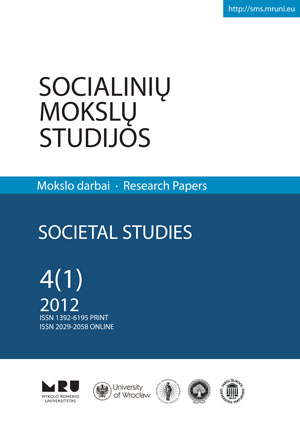Europos Sąjungos finansinė parama kaimo turizmui: teorinis ir praktinis aspektai
EU Financial Support for Rural Tourism: Theoretical and Practical Aspects
Author(s): Aldona DamulienėSubject(s): Social Sciences
Published by: Mykolas Romeris University
Keywords: rural tourism; European Union (EU); financial support; SAPARD; National Paying Agency (NPA); Single Programming Document (SPD)
Summary/Abstract: The article aims to analyse the definition of rural tourism and EU financial support to this type of business. Rural tourism is not only a trip to a village or recreation in countryside and facilities provided there. The definition of rural tourism has a broader and deeper thought which covers characteristics of rural tourism services, cultural natural rural environment, cognitive measure of culture, traditions and history. EU financial support has always been and still is an important instrument for the protection of the viability and competitiveness of Lithuanian rural areas. Enhancing the profitability of Lithuanian rural regions by means of creating jobs in competitive agricultural and rural economic activities as one of the most important aims of the EU support has been achieved only partially. Imperfect laws and secondary legislation, a complicated application procedure for support and excessively high selection criteria for activities which have not yet been started or have just started, lack of initial financial resources, a complex lending system for rural businesses, excessively complicated check system for investment expediency and delayed payments have substantially complicated access to financial support under the SAPARD programme and have obstructed the development of tourism business. Project selection criteria blocked young, early-stage rural businessmen lacking their own funds from taking part in the programme. Support administration procedure was improved to ensure successful use of support throughout the implementation of the Rural Development Programme and the experience gained allowed for the far more developed programme of 2007-2013 and more effective support administration mechanisms. Lithuanian rural tourism is likely to be given more attention in the new financial perspective of the EU support for 2007–2013 and hopefully this activity will receive greater support than under the previous programmes. Intensively growing demand for rural tourism services shows that investments in this type of business in our country, as well as in other European states, are expedient.
Journal: Socialinių mokslų studijos
- Issue Year: 4/2012
- Issue No: 1
- Page Range: 125-138
- Page Count: 14
- Language: Lithuanian

